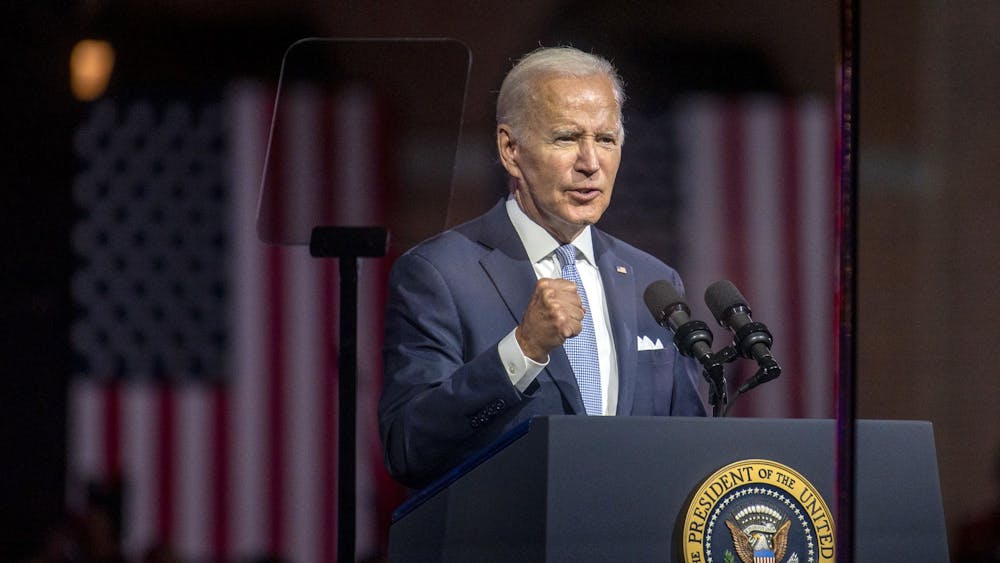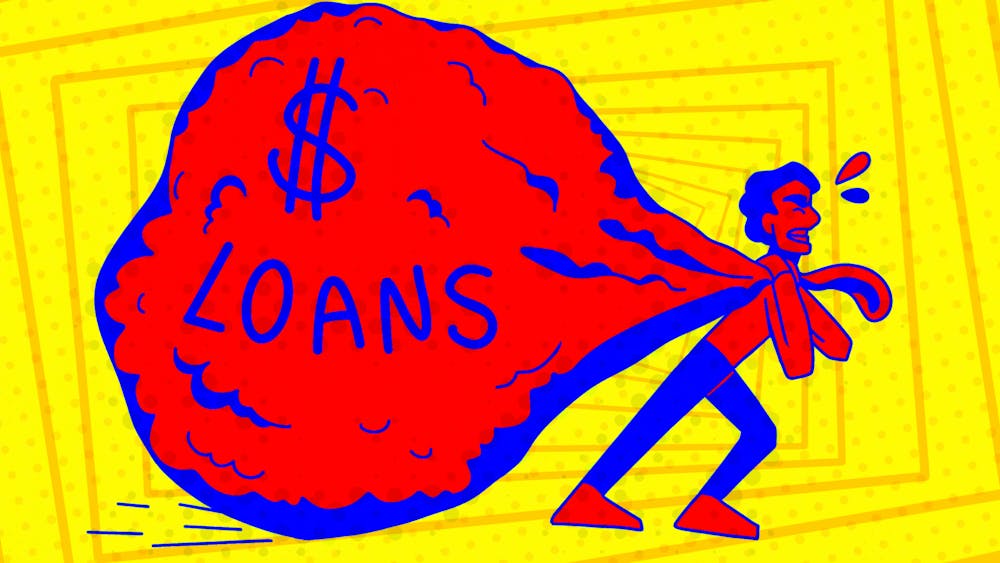In 2004 Barack Obama was a little-known state senator from Illinois. The political newcomer had only been in politics for eight years, but was already making a name for himself in the party.
And then came the speech.
In what might be the best-remembered and most-talked-about speech this decade, a rising star in the Democratic Party addressed the Democratic National Convention with one message: hope.
A political hero was born.
The central theme of Obama’s speech, called “The Audacity of Hope,” was the story of his life, of his parents’ and grandparents’ lives, of race and riots, of ambition and – most importantly – of hope.
Humble Beginnings
The story of how a poor, multiracial boy became a presidential nominee starts in the goat-herding fields of Kenya, where Obama’s father grew up.
It travels west to America to a university in Hawaii and meets his white mother from Kansas. When Obama was 2 years old, the couple divorced, and Obama’s father moved back to Kenya. He would see his father only one more time in his life before being informed of his death when Obama was 21.
Obama recalls the moment in his first book, “Dreams From My Father,” when his aunt in Nairobi called to give him the news one morning. “I sat down on the couch, smelling eggs burn in the kitchen, staring at cracks in the plaster, trying to measure my loss. At the time of his death, my father remained a myth to me, both more and less than a man.”
Obama’s story also took him to Indonesia as a child, then Hawaii as a teenager and Los Angeles as a college student before he transferred to Columbia University in New York.
He then went to Chicago as a community organizer for a non-profit organization. After a few years, he was accepted into Harvard Law School, where he worked for the Harvard Law Review and became its first black editor.
Obama received a lot of attention for this appointment and was even approached to write a book after he graduated. “Dreams From My Father” was printed in 1995. One of the main themes in the book is how Obama dealt with his identity as a multiracial young man throughout his life, as well as the absence of his father.
Not ‘beanbag politics’
After Harvard, Obama returned to Chicago’s south side, where he began to contemplate a career in politics. In 1996 he was elected to the Illinois State Senate.
He won easily after he challenged the petition signatures of his opponents, knocking many of them off the ballot.
This sort of machine or dirty politics was what Chicago was known for. Brian Vargus, a political science professor at IU-Purdue University Indianapolis, said that reputation can be either good or bad.
“He survived through that world,” Vargus said. “It’s both a positive and a negative. It’s a place where you learn – in Chicago – that ‘politics ain’t beanbag.’”
Four years after his victory, Obama set his sights on winning his local House seat. His opponent: four-term Democratic incumbent Bobby Rush.
Obama lost the race handily by a 2-1 margin. By almost all accounts, Obama returned to the Illinois Senate humbled by his defeat. For one of the first times in his life, Obama’s ambition was met with overwhelming defeat.
Soon after, Obama began eyeing a run for the U.S. Senate in 2004. In preparation for the race, Obama hired David Axelrod as one of his campaign strategists. Axelrod is now Obama’s chief political strategist and has been called the architect of Obama’s political message.
Right-hand man sharpens Obama’s message
Axelrod has been called the greatest political adviser between the coasts, as well as the Democratic equivalent of Bush’s Karl Rove. Axelrod has proven to be one of Obama’s biggest strengths – helping to focus Obama’s “brand” of hope, idealism and change. In fact, it was in this 2004 Senate race that Obama began using his message of hope and change as a focal point of his campaign.
It was also in 2004 that Obama got the biggest break of his life – a call from Democratic presidential nominee John Kerry, offering Obama the keynote speech at the convention.
“That really boosted him into the national spotlight in a way that had not happened before,” said Marjorie Hershey, a political science professor at IU.
Riding his newfound celebrity and media spotlight, Obama won his Senate bid easily but was still an outsider in what Vargus called the “most exclusive club.”
Vargus, an expert in election politics, said Obama’s appointment to the Senate subcommittee on foreign relations was very important. It enabled the relatively new Obama to gain quick international experience.
A historic rise
Obama announced his candidacy in February 2006 and was one of the early underdogs to challenge frontrunner Hillary Clinton. That announcement began what would end as one of the longest and most intense primary battle in history.
“She was anointed before the parties even started, like a year and a half ago,” said Vargus of Clinton’s big lead.
Obama – with Axelrod by his side – brought his message of hope and change to every state, surprising pundits with his early victory in Iowa, and sealed his nomination when he rattled off nine straight wins after Super Tuesday.
The convention in August – where Obama accepted the Democratic nomination for president – capped one of the quickest rises to presidential nomination in American history.
But this isn’t unusual, Hershey said, because many presidential candidates were unknowns to the American people before running for the office.
She added that parties often use up-and-comers to highlight their conventions. She said Bill Clinton was also able to use a speech at the 1988 Convention as a path to the nomination – and eventually the presidency – four years later.
Obama also rose at a time when the Democratic Party was looking for a new voice, Vargus said.
“He was in the right place at the right time. He fell into a situation where the Democrats were a divided party,” Vargus said. “He could represent the constituency that felt it had been left out for a long time. He seized the moment.”
Obama: The campaign machine
Since 2004, he’s gone from unknown senator to political celebrity
Get stories like this in your inbox
Subscribe





